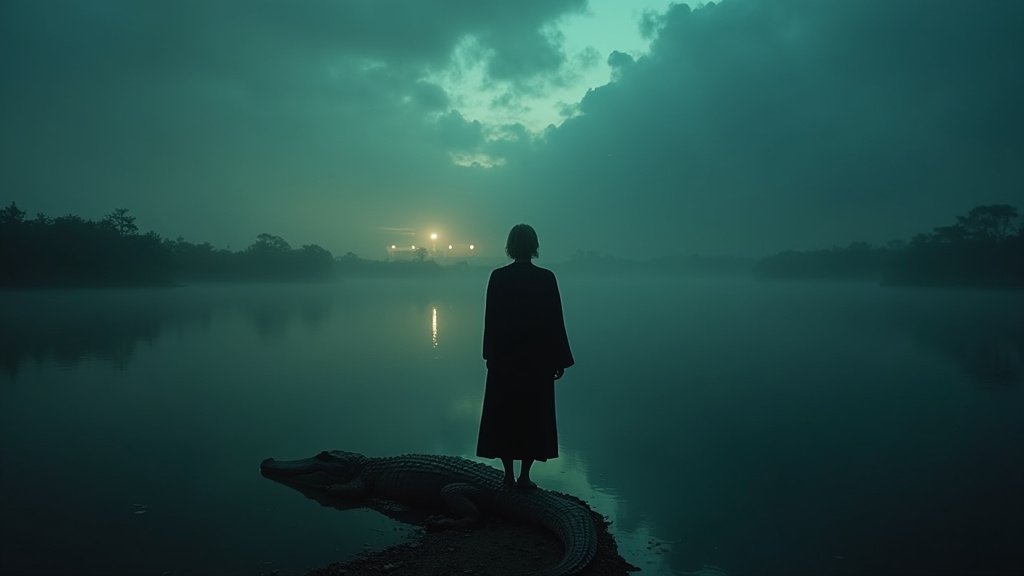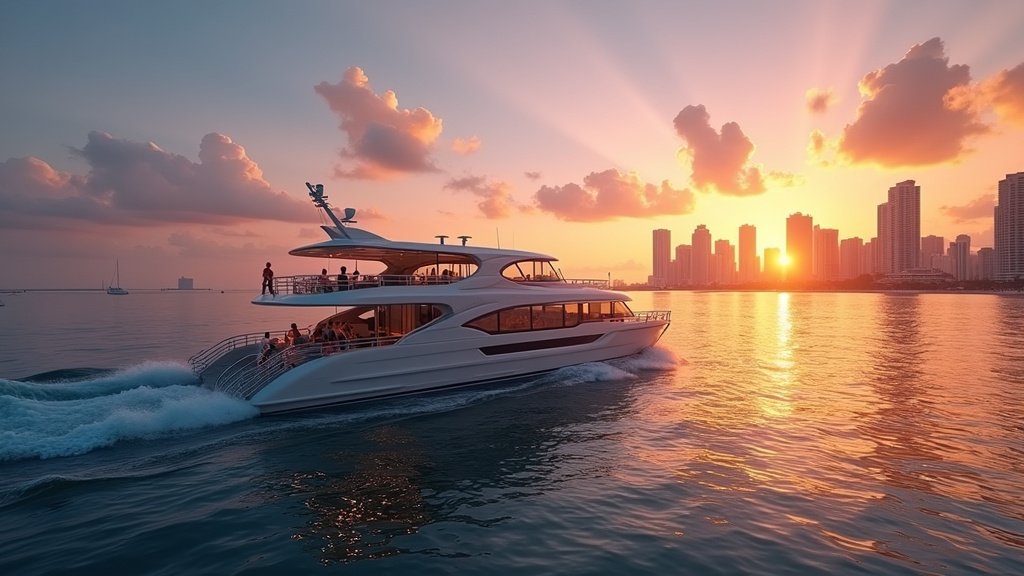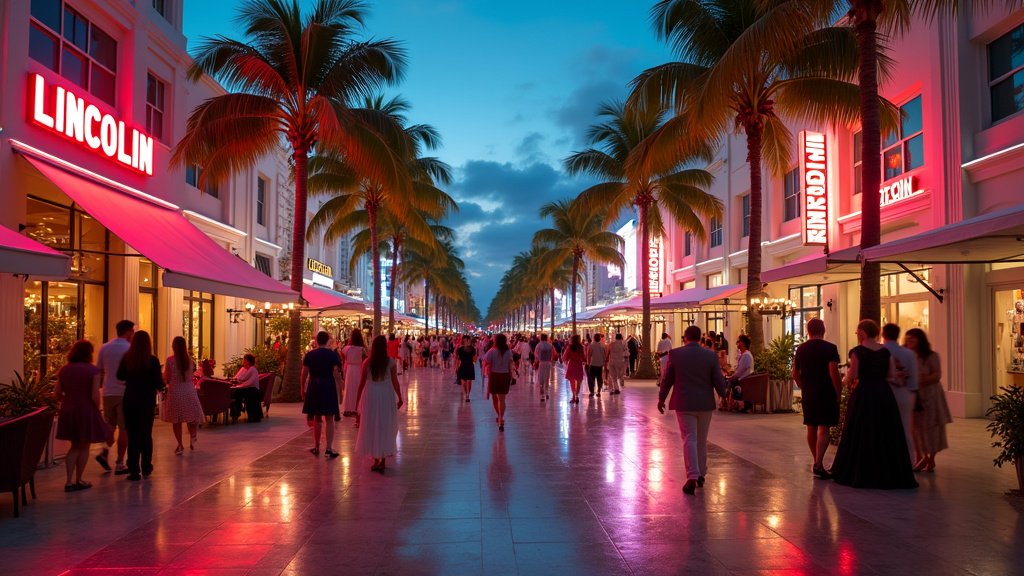Miami, Florida – All eyes in the legal and environmental arenas are on U.S. District Judge Kathleen M. Williams, a federal jurist whose upcoming decision could determine the future of a highly controversial immigration detention facility dubbed ‘Alligator Alcatraz’ by its critics. Situated deep within the Florida Everglades, a critical and environmentally sensitive ecosystem, the makeshift camp is the subject of a pivotal environmental lawsuit. Judge Williams has signaled her ruling, which could lead to the facility’s complete shutdown, will be issued no later than Thursday, August 21, 2025.
The Rise of Alligator Alcatraz
The facility, officially known as the Dade-Collier Training and Transition Airport, became an immigration detention center in early July 2025, quickly drawing national attention. The move was a key part of Florida Governor Ron DeSantis’s aggressive stance on immigration, aiming to serve as a staging ground for mass deportations. Described as a collection of temporary tents and trailers, the site was rapidly erected and designed to house up to 3,000 migrants, with approximately 1,000 already held there as of last week. The nickname “Alligator Alcatraz” itself highlights its remote, isolated location in wetlands teeming with alligators and pythons, a factor central to the current legal challenges.
Environmental Battle in the Everglades
The primary case before Judge Williams stems from a lawsuit filed by an alliance of environmental groups, including Friends of the Everglades, the Center for Biological Diversity, and Earthjustice, alongside the Miccosukee Tribe. Their core argument is that state and federal officials circumvented the National Environmental Policy Act (NEPA) by failing to conduct essential environmental impact studies before developing the facility. NEPA mandates federal agencies assess significant environmental effects of major construction projects.
Witnesses testifying in Williams’ courtroom have painted a stark picture of the potential ecological damage. Experts spoke of the loss of vital habitat for endangered species, notably the Florida panther, due to stadium-style lighting and increased activity. Concerns also include the addition of at least 20 acres of new pavement, undermining the government’s claims of using pre-existing concrete. The Miccosukee Tribe has underscored the proximity of the detention center to their ancestral lands and sacred sites, and the alarming lack of consultation during the planning and construction phases.
Florida officials, including Governor DeSantis, have vehemently dismissed these environmental concerns, asserting the project would have “zero impact” on the Everglades and claiming the facility is primarily a state operation, thus arguing it falls outside federal environmental review requirements. However, plaintiffs contend the facility represents a joint state and federal endeavor, making it subject to NEPA.
Judge Williams: A History of Challenging Executive Power
U.S. District Judge Kathleen Williams, appointed to the Southern District of Florida by President Barack Obama in 2011, has a noteworthy history of ruling in cases that challenge governmental actions, particularly those of the DeSantis administration. Her background includes extensive experience as both a prosecutor and a federal public defender. This Miami jurist previously earned the ire of state officials when she temporarily blocked a Florida law criminalizing undocumented immigrants, deeming it likely unconstitutional. Further escalating tensions, she held Florida Attorney General James Uthmeier in contempt of court for defying her order, accusing him of telling law enforcement agencies they could ignore her ruling.
In the ‘Alligator Alcatraz’ case, Judge Williams issued a 14-day temporary restraining order on August 7, 2025, halting any further construction, including new paving, lighting, filling, excavating, or fencing. While this temporarily paused the expansion, it did not restrict existing operations or immigration enforcement. The ongoing legal current affairs surrounding this facility underscore a broader struggle between state sovereignty and federal judicial oversight, with Judge Williams at the heart of this news battle.
Beyond Environmental Concerns: Civil Rights in Play
It is important to note that the environmental lawsuit is one of two major federal challenges facing ‘Alligator Alcatraz’. The other, a civil rights lawsuit led by the American Civil Liberties Union (ACLU), alleges human rights abuses and due process violations for detainees, including issues with confidential access to legal counsel and immigration court hearings. U.S. District Judge Rodolfo Ruiz, another Miami-based judge, presides over this separate, yet equally critical, case. Judge Ruiz recently issued a split decision, dismissing some claims but moving others related to First Amendment violations to a different jurisdiction.
The Impending Decision and Its Ramifications
The pending ruling from Judge Williams carries immense weight. Should she order the full shutdown of ‘Alligator Alcatraz’, it would be a significant victory for environmental advocates and tribal groups, potentially forcing a reassessment of how such facilities are established and operated within sensitive ecological zones. Such a decision would also undoubtedly deepen the existing friction between the federal judiciary and the DeSantis administration, which has already indicated its preparedness to appeal any adverse ruling.
As the August 21st deadline approaches, the future of ‘Alligator Alcatraz’ hangs in the balance, representing a crucial moment in Florida’s legal and political landscape, with wide-reaching implications for environmental protection, immigration policy, and the balance of power within the judicial system.





